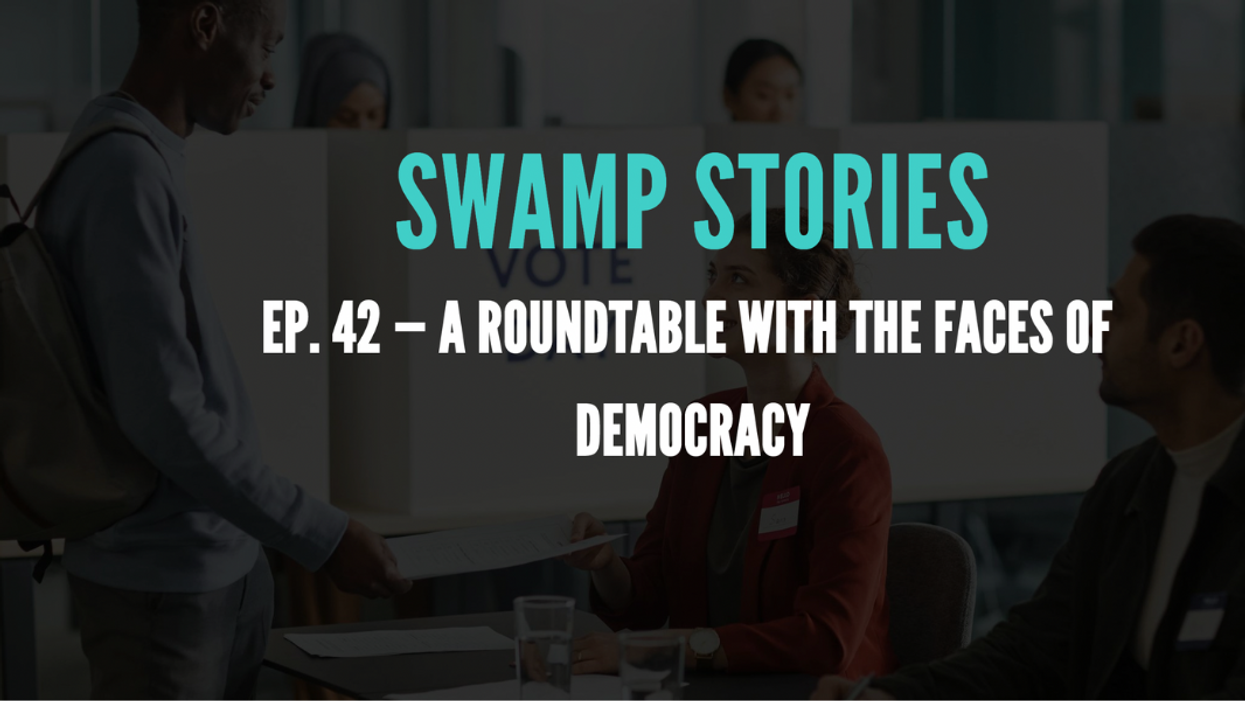Election officials and poll workers are our friends, family, and neighbors. They are dedicated workers who manage a vital part of our democratic infrastructure.
But because of a massive election disinformation campaign led by former President Trump and his allies, they have become the target of threats, intimidation, and harassment — adding to their already challenging job.
“Swamp Stories” host Weston Wamp sat down with a few of the election workers — local election officials and a poll worker from both parties — participating in our Faces of Democracy campaign to discuss building trust in our election processes, protecting elections workers from threats and harassment, and much more.
Issue One launched Faces of Democracy to amplify the voices of election workers. The campaign aims to educate the public about how our elections work, as well as advocate for the necessary improvements to our elections — like regular and sufficient funding from Congress for state and local election administration, and increased protections for election workers and their families from violent threats.
Listen Now




















Trump & Hegseth gave Mark Kelly a huge 2028 gift